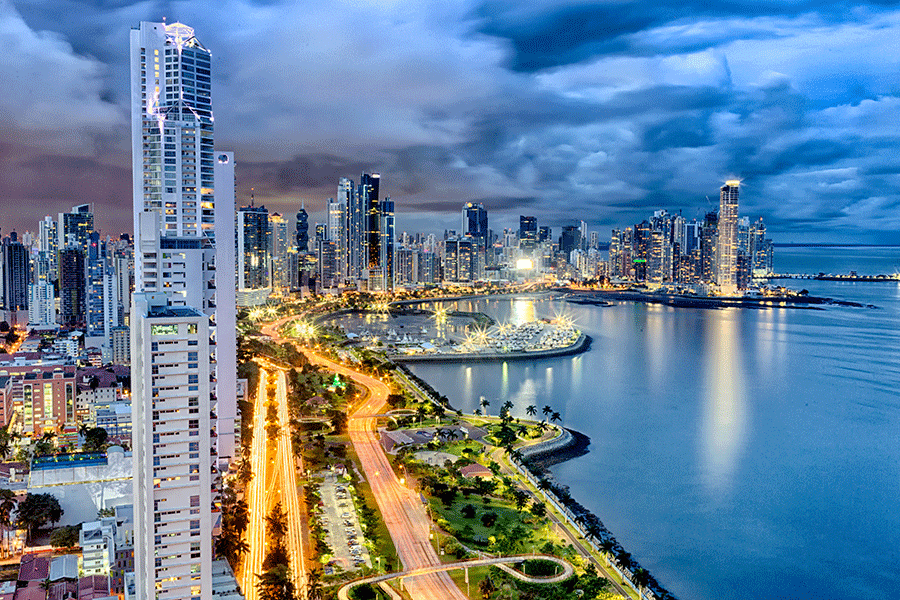Ivan Eskildsen, Panama’s Minister of Tourism during the signing of the “Transformation Towards the Tourism of the Future” declaration.
PANAMA CITY, PANAMA – MARCH 7, 2022 –Panama, an abundantly rich country in nature, history, and culture, has again underscored its commitment to sustainable tourism by recently signing the new “Transformation Towards the Tourism of the Future” declaration. Attested to by 11 Ministers and high authorities of tourism, the declaration signed in Panama was made in response to the World Tourism Organization’s (UNWTO) call for both governments and the private sector to rethink the purposeful development of the industry as it restarts and recovers from the impacts of the COVID pandemic.
“Our vision of tourism is anchored in sustainability, focusing on contributing to the empowerment of communities, scientific research, the regeneration of ecosystems and local cultures,” says Panama’s Minister of Tourism, Ivan Eskildsen. “Panama is proud to be leading the region with ongoing endeavors to connect travelers to communities, culture, and nature through infrastructure improvement and access to iconic experiences.”
The country’s 2020-2025 Master Plan for Sustainable Tourism, recognized by UNESCO as an example of innovation and sustainability, reactivates Panama’s Tourism, Conservation and Research Strategy (TCI) to highlight the country’s three core heritage pillars. These include Cultural Heritage (multifaceted culture), Green Heritage (extraordinary biodiversity), and Blue Heritage (ocean wonders).
Examples include the work the Tourism Authority of Panama (ATP) is carrying out with local and indigenous communities to reactivate tourism in various areas throughout the country to help preserve and sustain the biocultural legacy of these cultures.
In the Panama Canal watershed, one can travel upstream on the Gatun River to visit the Embera Community, one of the seven indigenous groups that live in Panama. The community welcomes visitors to understand their ancestral culture better and learn their way of life, including art, cosmovision, and rituals. In Bocas del Toro, the government collaborates with coastal Afro-Antillean communities to highlight the region’s unique gastronomy stemming from Caribbean roots and evolved by decades of local influence.
Also underway is a project to develop and rehabilitate 1,000 Km of Trails throughout the country, focusing on integrating the local communities for the benefit they derive from the trails, as well their efforts to help maintain them.
“Panama is brimming with one-of-a kind immersive experiences that invite active travelers to enjoy authentic and colorful pursuits, while making a difference in the country through tourism,” said Fernando Fondevila, PROMTUR Panama’s Chief Executive Officer. “From conserving wildlife and ecosystems, to fostering the growth of local communities, our approach is to appeal to the sensibilities of today’s traveler for immersive engagement and a desire to return.”
In Coiba National Park and its surroundings, the Marine Protection Zone has been expanded through executive orders to protect and enhance marine life, positioning Panama as a global Blue Leader in conservation. The Park allows visitors to learn and experience sustainable living through local communities still practicing artisanal fishing and leading turtle conservation projects. Other regions of interest include the Bay of Panama and the Las Perlas Archipelago, under the observation of the Smithsonian Tropical Research Institute, which offers a haven for migrating whales each year, further enhancing Panama’s reputation for spectacular whale watching.
In the Chiriquí Highlands, where Geisha Coffee – the world’s most valuable coffee – is harvested by the Ngäbe and the Buglé indigenous communities, the government has expanded its coffee circuit to include a range of tourism experiences at local farms. Under development by the ATP and the Center for Competitiveness of the Western Region (CECOMRO), the circuit currently includes 15 coffee farms with goals for 42 farms upon completion.
Other Latam countries joining Panama in signing the Declaration: Transformation Towards the Tourism of the Future include Colombia, Costa Rica, Ecuador, Guatemala, and Honduras. The declaration is also supported and signed by the Adventure Travel Trade Association (ATTA), PROMTUR and the Jordan Tourism Board.
To learn more about Panama’s Cultural, Green and Blue Heritage and visitor experiences, please visit https://visitpanama.com/things-to-do/.
For Panama’s most updated health and safety protocols, as well as entry requirements, visit www.visitpanama.com/information/travel-guidelines/.
About Panama Tourism
The Tourism Authority of Panama (ATP) is the Panamanian Government entity that aims to strengthen tourism as a strategic economic sector of Panama, through the Master Plan for Sustainable Tourism (PMTS) 2020-2025. Developing a sustainable model that generates an increase in employment nationwide, integrates communities, articulates the territories and increases the competitiveness of the industry.
Additionally, PROMTUR Panama is the official destination marketing organization (DMO) whose primary purpose is to promote and market Panama internationally. PROMTUR works closely with the ATP to further propel the country’s international promotion as a world-class tourist destination.
Together, ATP and PROMTUR work to promote Panama’s rich history, culture, natural beauty and remote locations, which are experienced through the destination’s three heritage pillars – Cultural Heritage (multifaceted culture), Green Heritage (extraordinary biodiversity) and Blue Heritage (ocean wonders).
For more information, please go to www.visitpanama.com. Follow Panama on Twitter, Facebook and Instagram.


